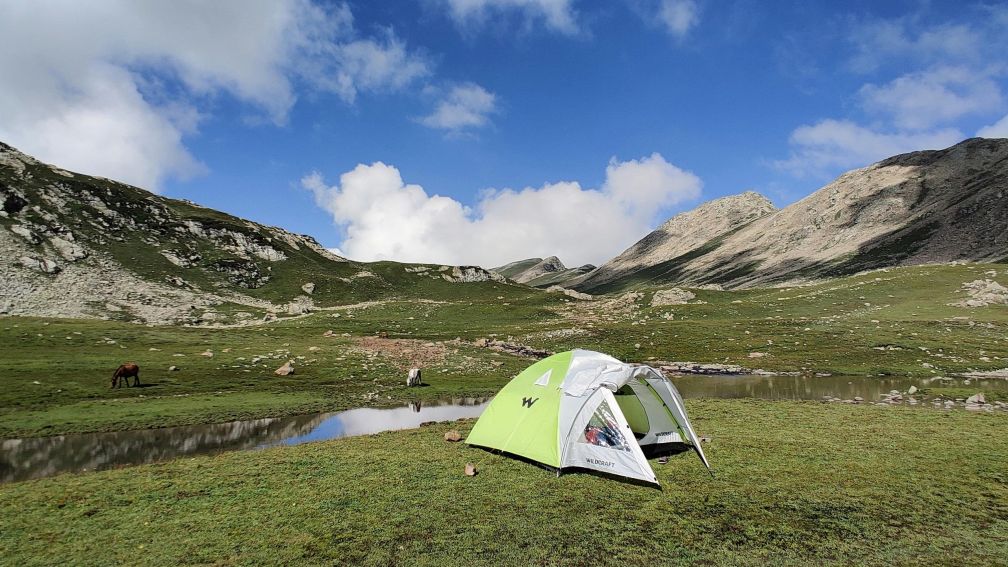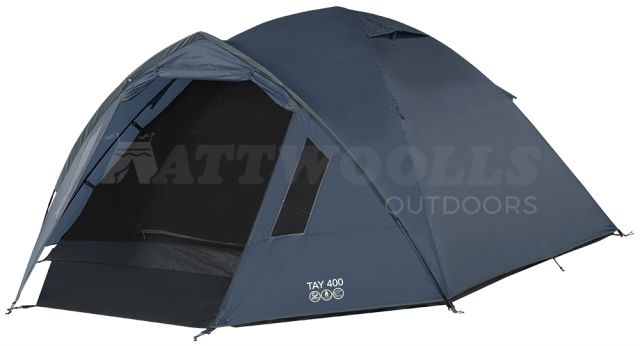What is Wild Camping?
Looking to wild camp this year but not sure where to start? Or maybe you’ve heard of Wild Camping but are unsure of what it is? Don’t worry; we’re here to help!
Wild camping is the act of camping outside of a designated campsite. Usually, in open countryside, allowing the camper to have more control over where they camp and escape the normalities of everyday life surrounded by nature.
There are several laws and rules which surround wild camping. Read on to see if its legal near you and what to expect in the UK.
Is it legal to Wild camp in the UK?
 What many people love about wild camping in the UK is the chance to reconnect with nature, unplug from technology and enjoy peace and solitude in remote areas.
What many people love about wild camping in the UK is the chance to reconnect with nature, unplug from technology and enjoy peace and solitude in remote areas.
But do you really know the rules that surround it? Whether you choose to wild camp in England, Wales, Northern Ireland or Scotland, make sure you know the do’s and don'ts to not get in trouble with the law.
Wild camping in England, Wales and Northern Ireland
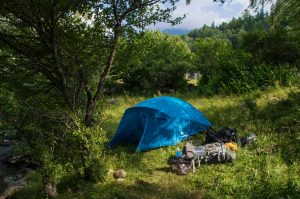 In England, Wales and Northern Island wild camping is not allowed without the landowners permission. If you gain the landowners permission you can stay for a maximum of 3 days but you must arrive by foot, boat or bike to qualify.
In England, Wales and Northern Island wild camping is not allowed without the landowners permission. If you gain the landowners permission you can stay for a maximum of 3 days but you must arrive by foot, boat or bike to qualify.
In England, Wales and Northern Island wild camping with a campervan, motorhome and caravan is not permitted. If you do not seek their permission before you are breaking the law and can be prosecuted for trespassing.
Wild Camping in Scotland
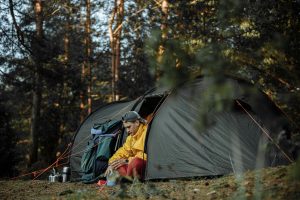
Wild camping is legal in some areas of Scotland thanks to the Scotland Land Reform Act 2003. This act gives you the right to roam freely on most land and in-land water spaces as long as you act responsibly. Campers must adhere to the Scottish Outdoor Access Code which outlines specific rules to protect wildlife, camper safety and the land. Please find the rules listed below.
- Arrive by Foot, water and bike only
- Must not camp as part of a group
- 3 Nights maximum stay
- You should move on if asked to
- Obey camping prohibited signs
- Seek landowners permission when camping on private land
- Leave no trace
- Forgo campfires - do not damage your surroundings
These rules must be followed or you will be committing an illegal offense and can be prosecuted.
Is Wild camping for you?
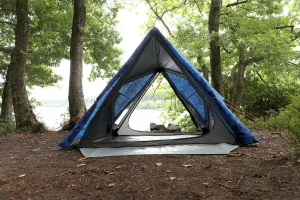
With increasing popularity in recent years and the rise of social media influencers promoting beautiful landscapes and spontaneous trips. Their main focus might be promoting an amazing outdoor lifestyle, but is wild camping really for you? Read on to find out the pro’s and cons of camping in the wild.
Pros of Wild Camping
Encourage outdoor activities - Outdoor activities like hiking, climbing and wild swimming all go hand and in hand with wild camping. These activities provide the freedom to explore remote locations and stay overnight in amazing landscapes. Make a trip of it and combine various outdoor pursuits all in one weekend.
Cost-effective travel - Wild camping is an excellent accommodation option for campers looking to watch their wallet. It costs nothing to pitch up for a few nights compared to traditional campsites with a nightly pitching fee. You will also be less likely to spend money when wild camping on unnecessary campsite add-ons, such as electric hook up, takeaways and evening entertainment.
Environmental Awareness - Promoting a simpler and low-impact lifestyle, Wild camping draws so many in for environmental reasons. By Wild camping you leave no trace and stay away from overcrowded tourist areas.
Adventure - Offering a sense of freedom, wild camping is perfect for adventure seekers and you can get a sense of freedom not found in campsites or resorts. If you're looking to add spontaneity then consider wild camping this summer!
Mental Health and wellbeing - Wild camping provides an immersive experience in nature which will reduce stress and anxiety. Disconnect from your busy everyday life and engulf yourself in the breath-taking landscapes the UK has to offer.
Cons of Wild Camping
Legal Restrictions - In many places, wild camping is considered illegal in the UK unless you have permission from the land owner. If you do not get permission. You risk being asked to leave, fined or arrested in prohibited areas.
Weather conditions - One of the main drawbacks is unpredictable weather conditions. Remote areas offer limited shelter making wild campers vulnerable in sudden changes of weather. Stormy conditions can be dangerous if you are not prepared.
Wildlife encounters - Camping in remote areas will of course increase the risk of wildlife encounters. One of the main rules of wild camping is to leave no trace - remember this is their home and you should respect it. Properly store your food and if campfires are allowed ensure they are gone to reduce disruption to wild animals.
Heavy gear - Since there are no facilities, wild campers must carry all their camping gear on their back, bike or boat. This can result in heavy backpacks making it more physically demanding.
Safety and Isolation - While it may sound appealing when scrolling through TikTok, consider the risks and safety before embarking on a wild camping trip alone. You will be far away from shops and medical assistance if anything goes wrong. Wild campers should take proper safety precautions and have basic knowledge of first aid for emergencies.
A final note from us
Despite the challenges listed above, wild camping can be a very enjoyable and rewarding experience when you're prepared. Consider all pros and cons before choosing a wild camp and make sure you research wild camping in your chosen area before you set off. We hope you have found this blog helpful and we promise you will love wild camping as much as we do!
For more inspiration check out of social pages or our latest blogs such as ‘What is Van Life’ in our Camp life section of our website.


